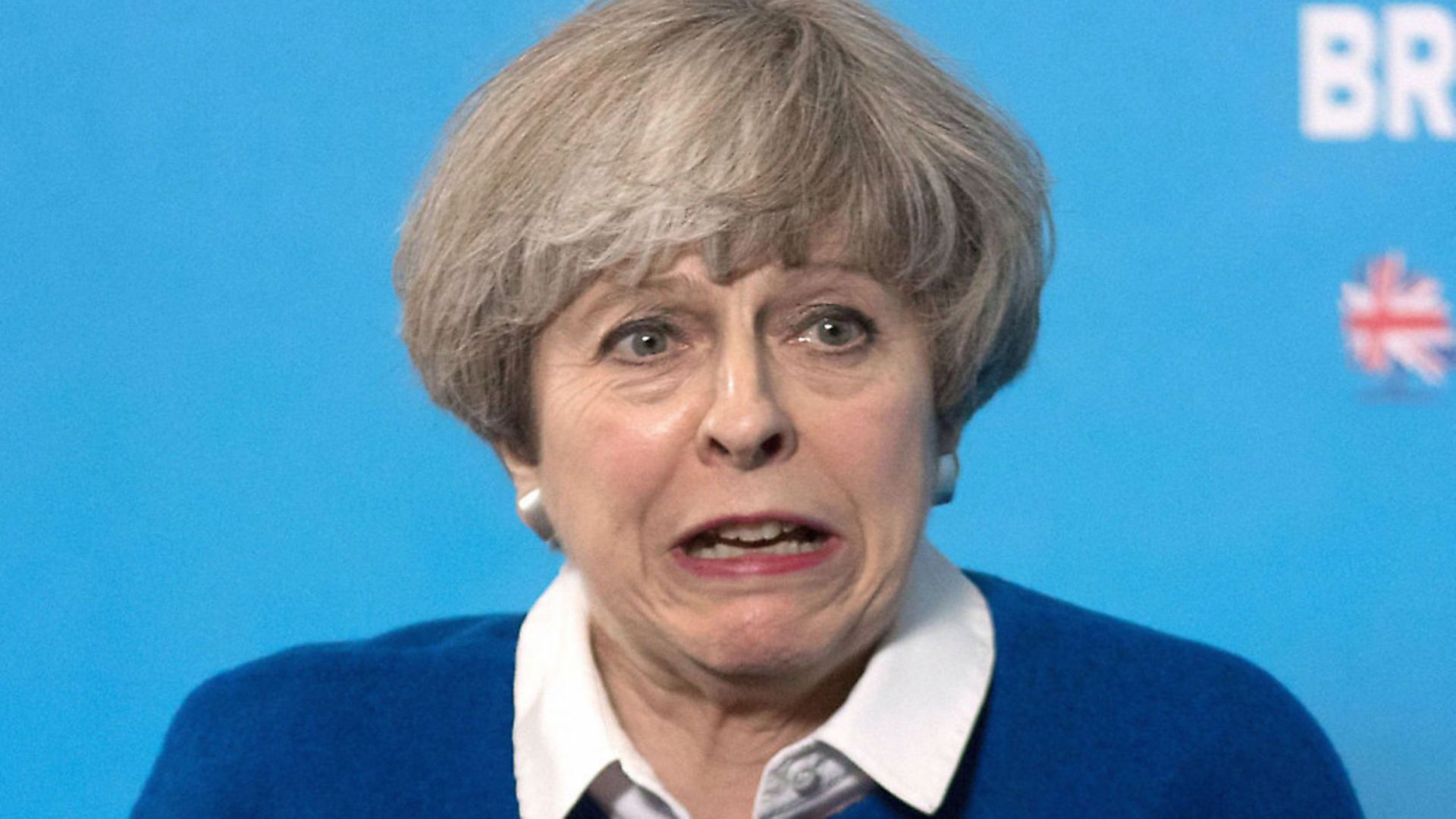
As the year comes to a close JAMES BALL looks ahead to 2018 and what may be in store for Brexit.
We’re finally limping towards the finish line: 2017 is coming to an end, and many of us will be getting ready to spend the Christmas break with our extended families – many of whom won’t share our views on any element of politics, but especially Brexit.
It’s not a bad time for a little reflection on all sides, especially as the end of this year coincides with Theresa May finally getting agreement to move to the second phase of Article 50 talks. So what are the actual prospects in 2018 for advocates of hard, soft, or no Brexit?
The first thing to acknowledge is May’s progress is much less than it first appears to be. The Prime Minister is taking the same approach to negotiating her Brexit deal as a child playing Buckaroo!: slowly and with incredible caution she piles small items on top of a grumpy horse, but sooner or later she’ll be a tad too rough – or pile an item too large – and everything will be hurled to the floor.
May has managed to pile up a number of relatively small concessions which could quickly come to haunt her once their significance is realised. Guaranteeing rights for EU citizens in the UK is popular even among Brexiteers – plus the right thing to do – so was a concession easily given, though once it’s more widely realised that the UK will continue to pay child benefit to families living in the EU after Brexit, there could be trouble here.
The exit bill has more-or-less been accepted too. But it’s the Irish border issue which has the biggest risk of bringing the edifice down on May: she must be able to guarantee no hard border between Ireland and Northern Ireland, which means staying in the customs union and single market, but is politically committed to leave both.
Muddling through has got May through 2017, but next year these issues will have to be made clear. She will also have to state whether or not the UK will be part of the single market and customs union through the transition period, to what degree the European Court of Justice will have authority after exit, and will have to face reality on the future trade deal the UK can hope for. We can perhaps expect her New Year’s celebrations to be muted.
Bad news for Theresa May’s relatively hard Brexit plan does not automatically spell good news for those hoping for a soft Brexit, where the UK remains in the single market and customs union. While Labour’s position on Brexit is still softening, they have not, as yet, explicitly endorsed this position, and it’s hard to see from where this stance could emerge.
Some soft Brexit supporters believe May could get through a deal of this sort with Labour votes – but it’s not at all clear Labour MPs would in practice support such an arrangement. If May pulled other parties into the negotiation process and gave them a seat at the table, such a deal might attract enough cross-party support to get through the Commons – but every sign suggests she plans to present a take-it-or-leave-it ultimatum to MPs.
This situation very closely mirrors the politics of the US right now: the Republicans are in power and have a majority in the House and the Senate, but persistently struggle to pass a budget and avoid government shutdown.
This disastrous outcome could be avoided with the support of Democrats – but Democrats rightly refuse to vote through a bad deal to avoid shutdown, instead opting to hold their red lines on sorting concessions to save child health care, and prevent the deportation of children brought illegally into the country as infants. Labour has no incentive to vote through a ‘Tory’ Brexit, and could well refuse to be bullied into it by dire consequences.
Which leaves the third prospect: stopping Brexit altogether, one many readers of this newspaper are likely to hope for. But while reversing Brexit remains a possibility, it’s still a very slim one.
There is little support for a second in/out referendum – though support is higher of a referendum on any final deal – and attempting to reverse Brexit without a second referendum could provoke a serious and potentially even violent backlash.
Even if it were to be attempted, it would not necessarily come without a cost: it’s the EU’s view that Article 50 can’t be unilaterally revoked. In their view, it would take the consent of the other 27 EU states to do so.
People in the EU Commission and in some of the member states say there would be some reluctance to do this: people in the EU would rather the UK leaves than have to endure more Brexit-style melodramas in the years to come. So they would need guarantees, and possibly other concessions – perhaps entering the Schengen free movement area, or giving up the rebate. Neither would be politically easy.
Whether Brexiteer or Remainer, 2017’s been a year when we’ve been able to push back difficult truths and save the real fights – or the real concessions – until later. That time is running out: in 2018, we’re going to have to face all of this. But we do, at least, have just enough time to enjoy a bit too much turkey before we get down to it.
Warning: Illegal string offset 'link_id' in /mnt/storage/stage/www/wp-includes/bookmark.php on line 357
Notice: Trying to get property 'link_id' of non-object in /mnt/storage/stage/www/wp-includes/bookmark.php on line 37






